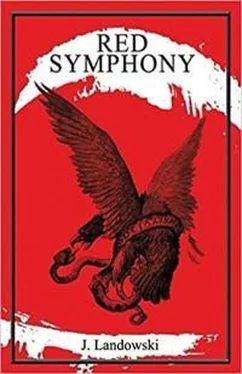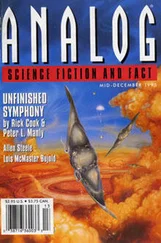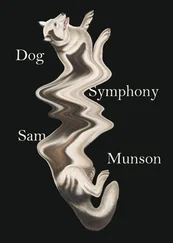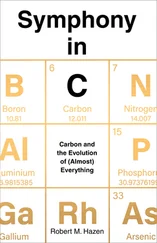G. - Continue, Rakovsky, I beg of you.
R. - The understanding of how the financial International has gradually, right up to our epoch, become the master of money, this
{p. 21} magical talisman, which has become for people that which God and the nation had been formerly, is something which exceeds in scientific interest even the art of revolutionary strategy, since this is also an art and also a revolution. I shall explain it to you. Historiographers and the masses, blinded by the shouts and the pomp of the French revolution, the people, intoxicated by the fact that it had succeeded in taking all power from the King and the privileged classes, did not notice how a small group of mysterious, careful and insignificant people had taken possession of the real Royal power, the magical power, almost divine, which it obtained almost without knowing it. The masses did not notice that the power had been seized by others and that soon they had subjected them to a slavery more cruel than the King, since the latter, in view of his religious and moral prejudices, was incapable of taking advantage of such a power. So it came about that the supreme Royal power was taken over by persons, whose moral, intellectual and cosmopolitan qualities did allow them to use it. It is clear that this were people who had never been Christians, but cosmopolitans.
G. - What is that for a mythical power which they had obtained?
R. - They had acquired for themselves the real privilege of coining money ... Do not smile, otherwise I shall have to believe that you do not know what moneys are ... I ask you to put yourself in my place. My position in relation to you is that of the assistant of a doctor, who would have to explain bacteriology to a resurrected medical man of the epoch before Pasteur. But I can explain your lack of knowledge to myself and can forgive it. Our language makes use of words which provoke incorrect thoughts about things and actions, thanks to the power of the inertia of thoughts, and which do not correspond to real and exact conceptions. I say: money. It is clear that in your imagination there immediately appeared pictures of real money of metal and paper. But that is not so. Money is now not that; real circulating coin is a true anachronism. If it still exists and circulates, then it is only thanks to atavism, only because it is convenient to maintain the illusion, a purely imaginary fiction for the present day.
G. - This is a brilliant paradox, risky and even poetical.
R. - If you like, this is perhaps brilliant, but it is not a paradox. I know - and that is why you smiled - that States still coin money on pieces of metal or paper with Royal busts or national crests; well, so what? A great part of the money circulating, money for big affairs, as representative of all national wealth, money, yes money - it was being issued by those few people about whom I had hinted. Titles, figures, cheques, promissory notes, endorsements, discount, quotations, figures without end flooded States like a waterfall. What are in comparison with these the metallic and paper moneys? ... Something devoid of influence, some kind of minimum in the face of the growing flood of the all-flooding financial money. They, being the most subtle psychologists, were able to gain even more without trouble, thanks to a lack of understanding. In addition to the immensely varied different forms of financial moneys, they created credit-money with a view to making its volume close to infinite. And to give it the speed of sound ... it is an abstraction, a being of thought, a figure, number, credit, faith ...
Do you understand already? ... Fraud; false moneys, given a legal standing ..., using other terminology, so that you should understand
{p. 22} me. Banks, the stock exchanges and the whole world financial system - is a gigantic machine for the purpose of bringing about unnatural scandals, according to Aristotle's expression; to force money to produce money - that is something that if it is a crime in economics, then in relations to finances it is a crime against the criminal code, since it is usury. I do not know by what arguments all this is justified: by the proposition that they receive legal interest ... Even accepting that, and even that admission is more than is necessary, we see that usury still exists, since even if the interest received is legal, then it invents and falsifies the non-existent capital. Banks have always by way of deposits or moneys in productive movement a certain quantity of money which is five or perhaps even a hundred times greater than there are physically coined moneys of metal or paper. I shall say nothing of those cases when the credit-moneys, i.e. false, fabricated ones, are greater than the quantity of moneys paid out as capital. Bearing in mind that lawful interest is fixed not on real capital but on non-existing capital, the interest is illegal by so many times as the fictional capital is greater than the real one.
Bear in mind that this system, which I am describing in detail, is one of the most innocent among those used for the fabrication of false money. Imagine to yourself, if you can, a small number of people, having unlimited power through the possession of real wealth, and you will see that they are the absolute dictators of the stock-exchange; and as a result of this also the dictators of production and distribution and also of work and consumption. If you have enough imagination then multiply this, by the global factor and you will see its anarchical, moral and social influence, i.e. a revolutionary one ... Do you now understand?
G. - No, not yet.
R. - Obviously it is very difficult to understand miracles.
G. - Miracle?
R. - Yes, miracle. Is it not a miracle that a wooden bench has been transformed into a temple? And yet such a miracle has been seen by people a thousand times, and they did not bat an eyelid, during a whole century. Since this was an extraordinary miracle that the benches on which sat the greasy usurers to trade in their moneys, have now been converted into temples, which stand magnificently at every corner of contemporary big towns with their heathen colonnades, and crowds go there with a faith which they are already not given by heavenly gods, in order to bring assiduously their deposits of all their possessions to the god of money, who, they imagine, lives in the steel safes of the bankers, and who is preordained, thanks to his divine mission to increase the wealth to a metaphysical infinity.
G. - This is the new religion of the decayed bourgeoisie?
R. - Religion, yes, the religion of power.
G. - You appear to be the poet of economics.
R. - If you like, then in order to give a picture of finance, as of a work of art which is most obviously a work of genius and the most revolutionary of all times, poetry is required.
G. - This is a faulty view. Finances, as defined by Marx, and more especially Engels, are determined by the system of Capitalistic production.
{p. 23} R. - Exactly, but just the reverse: the Capitalistic system of production is determined by finance. The fact that Engels states the opposite and even tries to prove this, is the most obvious proof that finances rule bourgeois production. So it is and so it was even before Marx and Engels, that finances were the most powerful instrument of revolution and the Comintern was nothing but a toy in their hands. But neither Marx nor Engels will disclose or explain this. On the contrary, making use of their talent as scientists, they had to camouflage truth for a second time in the interests of the revolution. And that both of them did.
Читать дальше












